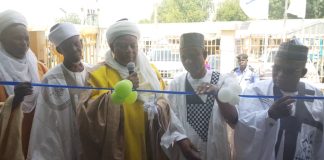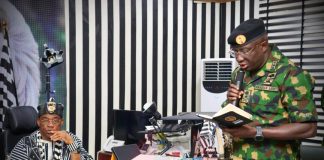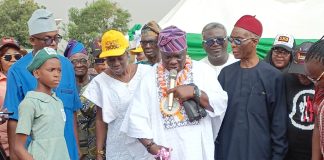Nigeria has the highest energy deficit on the continent, according to senior energy specialist for the World Bank Mr. Arsh Sharma, who also noted that over 90 million people are not linked to the national grid.
This was said by Sharma during a seminar titled “Unlocking Opportunities for Clean and Sustainable Energy” at the Lagos 2022 Ehingbeti Summit’s closing ceremony.
He asserted that “Nigeria is the only country experiencing that kind of an energy crisis. Over 90 million people in Nigeria lack access to power. The development bank partners must work together to support the efforts of the Nigerian government at both the federal and state levels because this is the largest energy deficit in all of Africa.
Read Also: Atiku: Nigeria doesn’t need leader who will take her from bad situation to rotten one
He said that the World Bank has started a rural electrification project to provide access to power for those living in rural areas of the nation.
He said that the project’s initial goal was to target 450,000 families, but that it has outperformed that goal in terms of impact, creating over 100,000 jobs and having an influence on the lives of 4 million Nigerians.
“Going forward, our goal is to triple the ambition. Because there are many unexplored potentials for the marketing of PV solar systems, we started interacting with the Lagos State government and doing a realistic study for distributed PV. We have been providing technical assistance to the State, and we will aid it in putting its plans in place for PV solar energy, he said.
Olalere Odusote, commissioner of the Lagos State Ministry of Energy and Mineral Resources, also spoke at the event. He claimed that due to the large number of players in the solar industry, solar is the most dynamic industry in the nation. The State has set a goal for Lagos of 1 Gigawatt of solar power by 2030.
He continued by saying that in order to accomplish this, a sizable amount of capital must be mobilized.
He further stated that the State is working with Discos to install lighthouses in certain locations where it may intervene to increase power supply at a reasonable cost.
According to him, the state administration is preparing to disconnect the Lagos State grid from the national grid so that Lagos won’t be impacted by any grid failures.
Yemi Edun, managing director of FCMB, asserted that renewable energy is here to stay and emphasized the necessity of strong partnerships between the public and commercial sectors to advance renewable energy in the nation.
Read Also: How personal income tax can help Nigeria address its revenue challenges
She continued, noting that the federal government lacks the capacity to supply power to the 40% of the population that is not connected to the national grid. FCMB has identified critical sector sectors to ensure the rapid development of renewable energy in the nation.
She said that over the course of the previous four years, the bank had given out loans totaling more than $6 billion to advance the nation’s solar energy industry.















